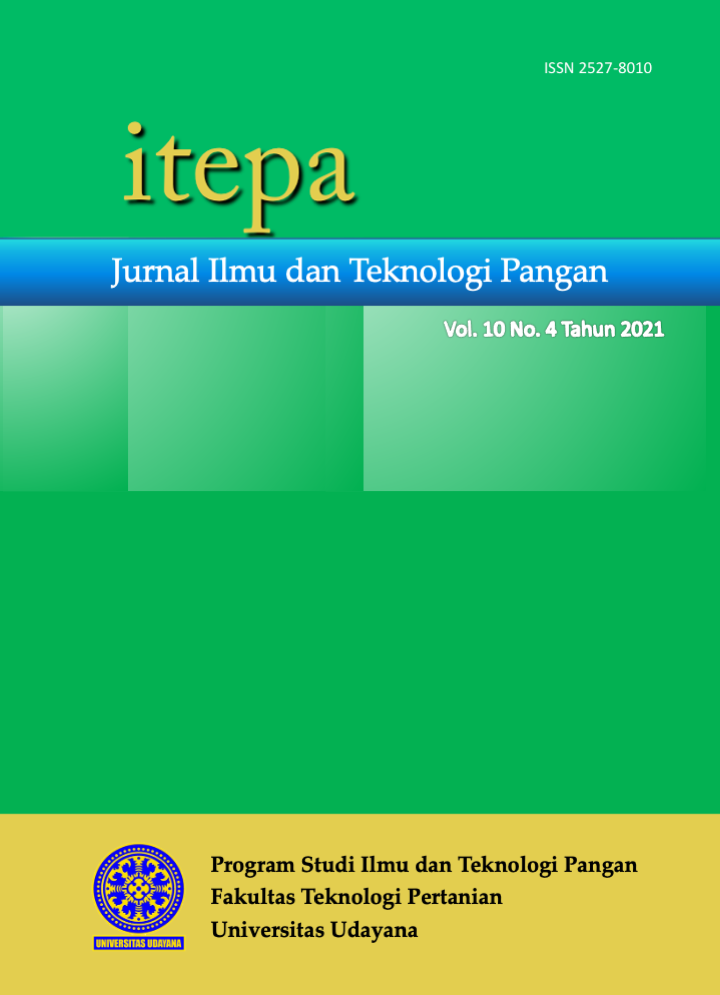Deteksi Keberadaan Escherichia coli dan Staphylococcus aureus pada Pangan Tradisional Babi Panggang Karo (BPK) di Kecamatan Kuta Selatan, Kuta dan Denpasar Timur
Abstract
Karo roasted pork is a traditional Batak food made from roasted pork and served with a sauce made from pork blood cooked with andaliman herbs and spices. This study aims to detect the presence of microbes and the food safety of karo roasted pork sold in Batak restaurants in subdistricts of South Kuta, Kuta and East Denpasar. This study used a survey method with a saturated sampling technique. The samples were determined in all restaurants selling karo roasted pork in Badung Regency, Bali. The research data were presented in tabular form and analyzed descriptively. The variables observed were total microbes, Escherichia coli and Staphylococcus aureus. The results showed that 71% of the restaurants meet the total microbial requirements of processed meat products with heat treatment based on SNI 7388:2009 are < 5 x 105. 57% of karo roast pork has not met the requirements for E.coli contamination limits in processed meat in Indonesia, and 100% of karo roasted pork has met the S.aureus requirements for processed meat in Indonesia. As many as 57% of producers process karo roast pork if there is an order. Sanitation and hygiene practices at Batak traditional restaurants in Badung regency, Bali are quite good.





